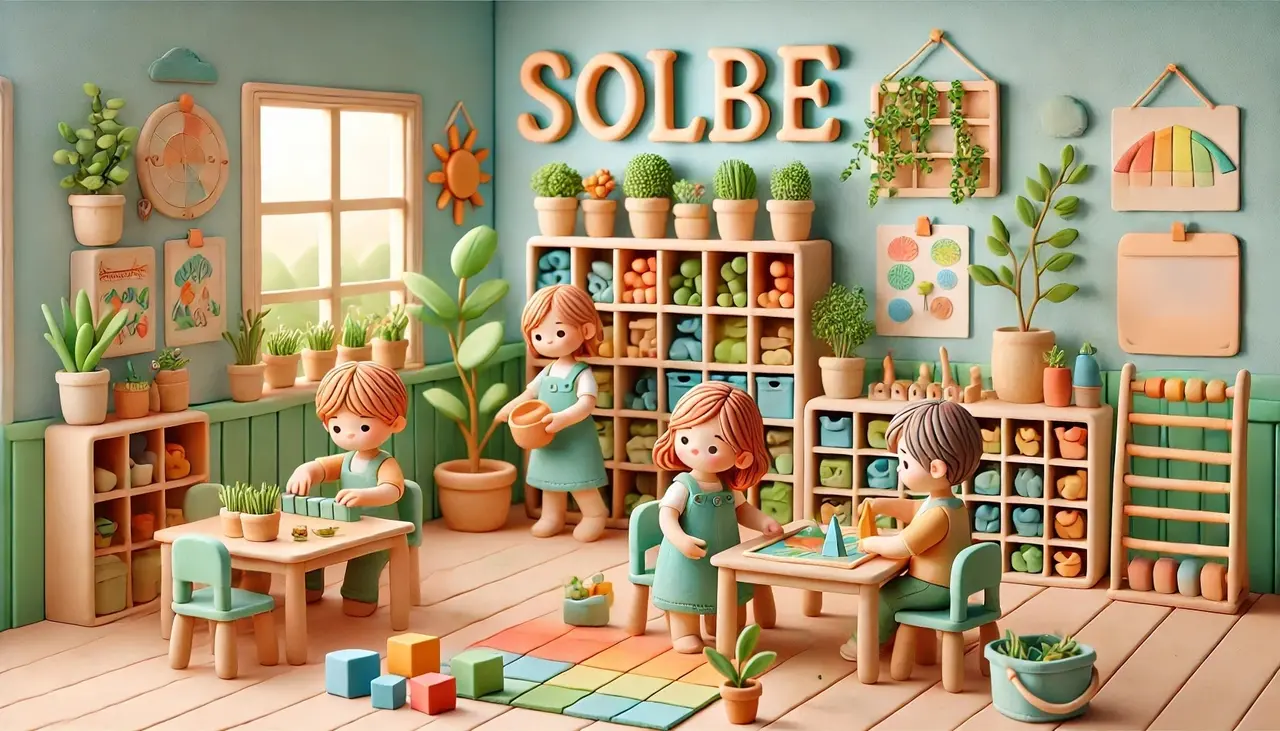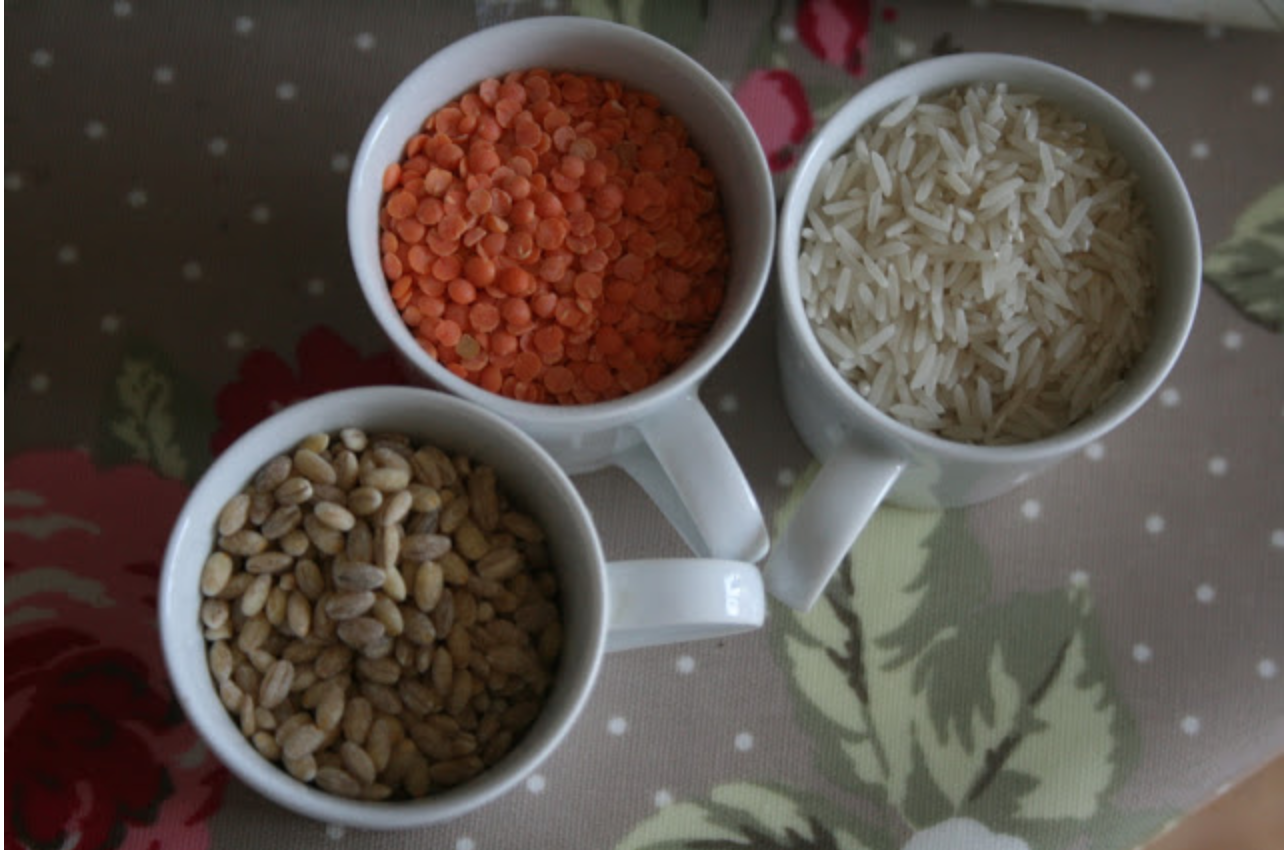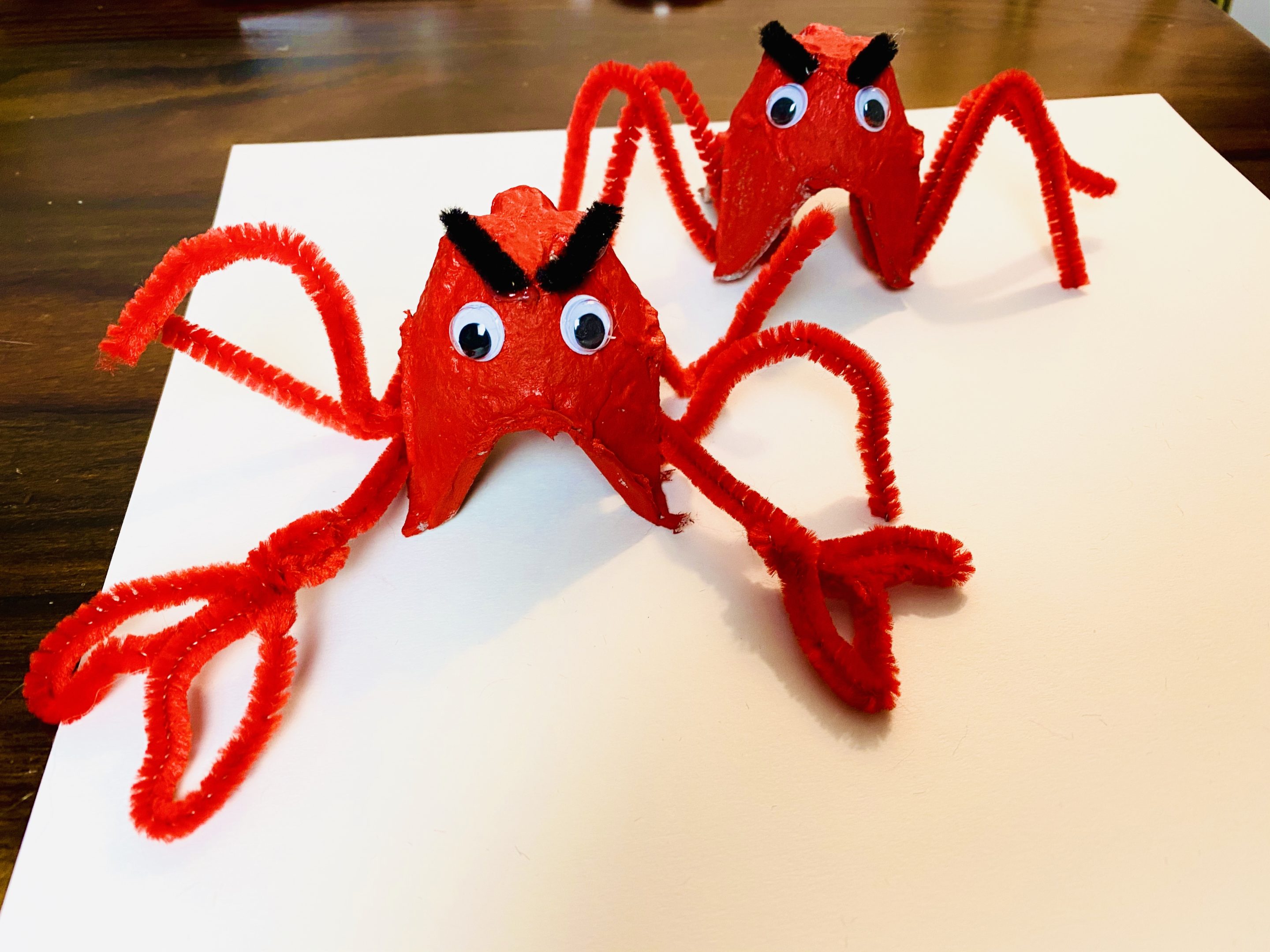Play is Work and Work is Play

“Play extends beyond the learning and development of cognitive, physical, language, social, and literacy skills; it is the ideal opportunity for children to thrive.”
What You’ll Learn
What is play? Why is play important? What does play look like at SolBe? How can I support my child’s play at home?
At SolBe, we are driven to create the most nurturing, positive, and holistic experience for your child. We believe that children deserve hands-on exploration opportunities to discover and explore their interests. This belief directly aligns with our play-based approach, which is designed to offer children different sensory, physical and cognitive experiences. Here is what we believe is important to remember about play and how you can support this experience at home!
Play is…
Play is defined by several theorists as a critical component of children’s early learning experiences. Jean Piaget’s theory of play suggests that children’s play and intellectual development are intertwined. Lev Vygotsky similarly described play as a “learning activity” and believed that imaginary play, specifically, is vital to children’s cognitive, social, and emotional development. He believed in play being the main focus of helping children. Dr. Maria Montessori believed that “play is the work of the child.” Montessori theorized that children learn best through play based in reality and play that encourages the use of all five senses. While these are just a few of the many different theories of play, there is a general consensus that play is an integral part of a child’s development. In its simplest forms, however, play is an intrinsically-motivated activity that often results in joyful discovery.
The Power of Play
The Center on the Developing Child at Harvard University (2019) identifies three core principles that guide us towards helping children thrive. These include: Supporting responsive relationships Strengthening core life skills Reducing sources of stress Play is the ideal avenue to support all three of these principles. Play extends beyond the learning and development of cognitive, physical, language, social, and literacy skills; it is the ideal opportunity for children to thrive.
- Enhances brain structure and function.
- Builds active, healthy bodies and is a great way to increase physical activity levels.
- Is creative.
- Supports the development of safe, stable, and nurturing relationships.
- Is an expression of views, experiences, and even frustrations.
- Allows children the opportunity to gain a fuller understanding of their perspective.
- Is therapeutic.
- Helps to regulate the body’s stress response.
- Builds self-confidence and self-advocacy skills.
- Is simple and complex.
- Is varied—symbolic, sociodramatic, functional, games with rules, and more.
- Supports positive peer interactions.
- Helps children adjust to the school setting.
Play at SolBe
SolBe believes that all children and families can thrive. SolBe also believes that intentional opportunities for play can influence this. We know that play profoundly shapes the performance of the human brain, at every age. We also know that play correlates with creativity, imaginative problem-solving, resilience, and the capacity to learn from making a mess of things. At SolBe, play is work and work is play. Joyful learning is valued and encouraged through play, for children and adults alike.
Supporting your Child’s Play
Parents and caregivers have a unique opportunity to provide nurturing and positive play experiences at home. Play does not have to include expensive or elaborate toys—simply observing or joining your child in their play will allow you to see the world from their perspective and help you develop your own playful mindset. Play is most beneficial when caring and trusting adults are involved. We encourage you to offer opportunities of unstructured and structured play that contain possibilities for leading, exploring, and enjoying. Remember, simplicity is the key, and your gentle, nurturing guidance is enough.
Empowering Takeaways
- Play can offer children a variety of sensory, physical and cognitive experiences.
- Play is a simple joy that all humans need and deserve.
- Play supports responsive relationships, strengthens core life skills, and reduces sources of stress.
- Play is an opportunity to thrive.
Be vibrant and keep thriving!
This article was last reviewed or updated on September 29, 2023.
About the author: Rebecca is the Head of Family Empowerment and Student Success at SolBe Learning. Rebecca has worked in the field of early education for six years, with a passion to support the optimal development of young children and families.
Related Articles
Explore our latest insights and resources.

Using Your Voice Effectively: Intentional & Positive Phrases to Use With Your Child

Work and Family: 7 Strategies to Find Balance as a Parent

Understanding and Supporting Early Childhood Mental Health

Understanding and Monitoring Developmental Milestones

The Value of Process-based Learning

The Truth about Parenting: Being a Thriving Parent

The Curious & Creative Classroom

Social-Emotional Learning: Five Competencies and How to Teach Them at Home

Social Emotional Learning Part Five: Teaching Growth Mindset to Inspire Change

Social-Emotional Learning Part Three: Teaching Friendship to Inspire Change

Social Emotional Learning Part Two: Teaching Acceptance to Inspire Change

Social Emotional Learning Part Six: Teaching Empathy to Inspire Change

SEL: Parent Social-Emotional Competence & Well-Being

Social Emotional Learning Part Four: Teaching Respect to Inspire Change

Reflective Learning: 10 Meaningful Questions to Replace “How Was School Today?”

Prosocial Behavior: Strategies to Model, Practice and Praise

Ranking Boston Area Private Schools: Finding The Best Programs For Your Children

Prosocial Behavior: Encouraging Your Child To Practice Gratitude

Play is Work and Work is Play

Preparing a Learning-rich Environment

Nurturing Brain Development During the Window of Opportunity

Exploring Spanish Language Learning Through Play-Based Activities

Early Intervention: Identifying Support for Children Birth to Age Three

Developmental Screening: Acting Early and Advocating for Your Child

Daily at Home Project: Red House – Fun For All Greatest Hits & More

Daily at Home Project: Rainbow Painting and Make Your Own Ice Cream

Daily at Home Project: Pots, Pans, Colors & Rainy Day Brownies!

Daily at Home Project: Lid Matching and Animal Washing Station

Daily at Home Project: Making Music with The Very Noisy Bear

Daily at Home Project: Fine Motor Activities and Let's See Where a Dot Can Take You!

Daily at Home Project: Crazy Art from Silvana Carpio

Daily at Home Project: Baby Treasure Basket and Rocks of Hope

Daily at Home Project: Colander Pipe Cleaner and Pipe Cleaner Bubble Wands

Daily At-Home Project: Mix and Match Faces

Daily At-Home Project: Homemade Binoculars for Little Explorers!

Daily At-Home Project: Gratitude Jar

Daily At Home Project: Veggie Paint Making From Marlo
Stay Updated with SolBe
Join our newsletter for the latest insights and exclusive content on early learning and childcare.































































